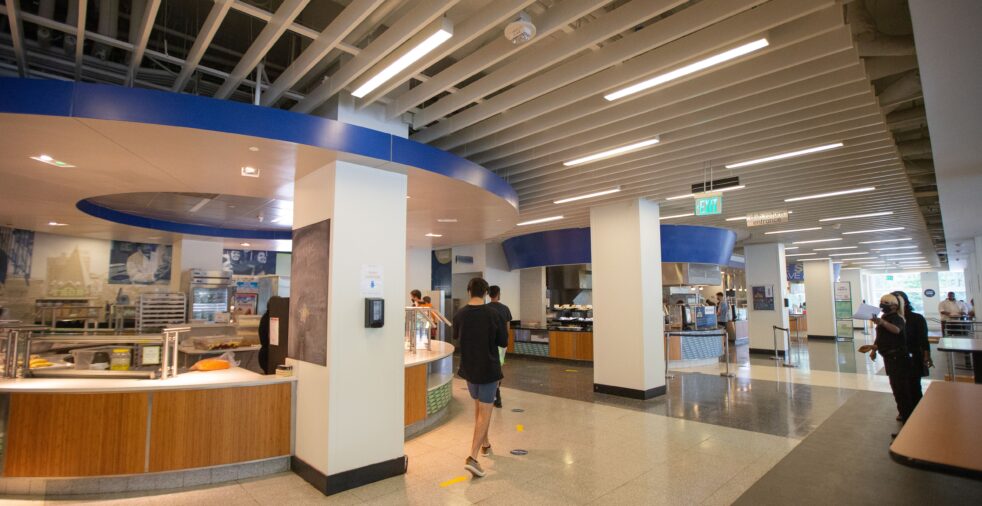Students have criticized the food at Tech for many years, but the changes implemented in response to the COVID-19 pandemic have furthered vocal dissatisfaction with the dining experience.
The first changes implemented by Tech Dining were at West Village: Students saw the removal of Limón and Chile, limiting options for students on West Campus, and the transition away from meal swipes as payment at
Starbucks.
Complaints about having to use Dining Dollars and BuzzCard funds for coffee faded, however, when the next policy was announced: reduced hours at all of the dining halls across campus.
Every dining hall on campus updated their hours to include time to sanitize the building between meals. According to the Tech Dining Service’s website, these closed hours designated for a “deep clean” of the facility, along with increased hand wash stations and hand sanitizer located around the dining hall, fall in line with their commitment to “the safety and well-being of students, faculty, and staff, as [we] prepare to return to campus in the fall.”
For some students with busy schedules, the reduced dining hall hours have eliminated many of their opportunities to eat during the day.
“I have 19 credit hours, which is full of classes, but due to the restricted time, I’m not able to use all of my swipes when I want food,” Kay Perkins, first-year HTS, said. “I either have a class that interlays with the opening or sometimes only have a slot during lunch but can’t go to a dining hall due to the closed hours.”
The dining schedule tightened during Labor Day weekend, when students, despite heavy encouragement to stay on campus, were given two dining hall options on campus, both of which only served students during limited hours. Additionally, only one of the options at West Village, True Balance, served lunch and dinner; the other micro-restaurants only served dinner.
More dining shortages have resulted from the current construction of the Student Center. Several former dining locations such as Subway, Auntie Anne’s and Ray’s Pizza have been removed from campus. A Chick-fil-a tent located at Tech Green has replaced the normally packed Chick-fil-a in the former Student Center. However, the tent location serves limited options and is open for select operating hours each week.
While all students face limited meal time with these changes, students with dietary restrictions also have fewer options with what they can eat on campus.
Often, locations at West Village, such as True Balance and Iron Skillet, do not serve meatless options or neglect to make more after the initial options ran out.
This is not just an issue on West Campus. Students who choose to dine on East Campus have also encountered problems finding food they can eat.
“There have been multiple occasions at North Avenue where I wanted food that was missing the label saying what it was and telling you whether it was vegan/vegetarian/gluten free,” Hudson McGaughey, first-year ENVE, said. “The food looked like it had meat in it, but because it wasn’t labeled I had no clue, so I just had to avoid it, which was a bit frustrating as there are pretty limited vegan/vegetarian options beyond the black bean burgers, cheese pizza, and salad.”
This is not the first time McGaughey has found it difficult to be a vegetarian student on campus.
“During the first week, there was also one instance where I did Grab and Go from North Avenue and grabbed what was labeled as a black bean burger, but when I opened up the container I could smell that the patty was actually meat,” he said.
Vegetarian students are not the only students with specific dietary needs. Students on campus also follow vegan, gluten-free, kosher, halal and other diets that limit their options in the dining hall and other eateries on campus. With misleading labeling and rare restocking, this semester’s dining plans do not cater to students with various dietary restrictions.
Despite the reduction in dining hall hours and food options due to COVID-19, first year students living on campus are still required to purchase a meal plan upwards of $2,000. This has left many students frustrated about not having the choice of when they can eat or, for students with dietary restrictions, if they can even eat at all, wondering if the freshman dining plan is worth the money.
